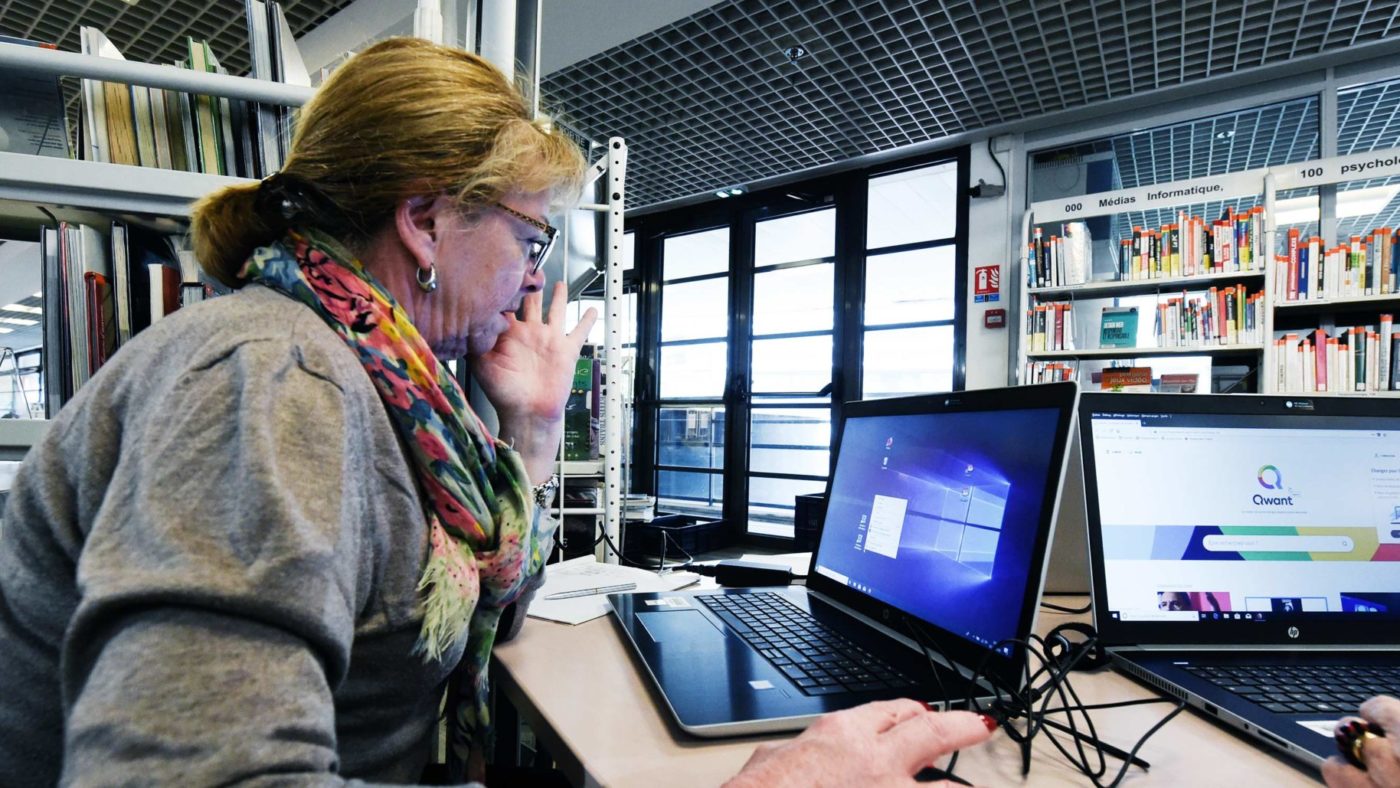For people who are able to use technology, shifting everyday life online has been strange and unexpected, but not exactly a leap in the dark. For the millions of people who can’t, the lockdown means loneliness and social isolation.
And sadly, millions is no exaggeration. There are currently 11.9m people in the UK who lack the essential digital skills for life. That means that one in five people struggle to communicate, search for health information, or access government services online. And social exclusion correlates closely with digital exclusion – of the 4.1 million adults who are offline in the UK, 71% have no more than a secondary level education, and nearly half are from low-income households.
The UK’s loneliness problem pre-dated this pandemic: a study by The Co-op and the British Red Cross reveals over 9 million adults in the UK across all ages – more than the population of London – are either always or often lonely. That’s another startling figure, especially considering that loneliness is as bad for your health as smoking 15 cigarettes a day.
Nonetheless, the health crisis has brought into sharp focus the implications of being digitally excluded.
For me, video calling apps have helped preserve some normality in the current situation. Life is different – there’s no doubt about that – but technology allows me to continue to work from home and to keep in touch with friends and family. But for people who cannot use online communication services, and who rely on face-to-face interaction for social contact, now is a frightening time to be on the wrong side of the digital divide.
And at a time when economic activity grinds to a halt and people are losing their jobs, access to government services – many of which are digital-first – is also essential, particularly for those who are less financially secure.
One myth I am keen to bust is that this is an issue that’s only affecting older people. Take Alex, 24 from Newham: he worked in a restaurant until he was let go by his employer a week ago without any notice. Socially isolated with no help from friends or family, he approached Skills Enterprise, a community organisation in East London, looking for support on how to apply for benefits online.
Unfortunately, the UK lockdown announced on Monday means that we are unable to offer digital skills training through a blend of face-to-face support and online learning – the model that has allowed us at Good Things Foundation to improve the lives of more than 3 million people through digital since 2010 – although many of our community partners continue to support people remotely.
When normality resumes, we must remember that digital exclusion will continue to shape the lives of millions of people. The spread of Coronavirus and our reliance on technology has made it clear for all to see that digital inclusion is not a nice-to-have, it’s a need-to-have. When we emerge from this crisis, which we will, the provision of digital skills must be a priority for policymakers.
It’s not just a case of levelling the playing field – there is also a clear economic argument for closing the digital skills gap. Research by CEBR has shown that investing in ensuring everyone in the UK is digitally included will lead to a net present value of £21.9 billion to the UK, with a benefit of almost £15 for every £1 invested in basic digital skills. By upskilling the nation, we will begin to accrue economic benefits through higher employment rates, increased earnings for individuals, more transactions shifting online, savings to the NHS, and much more.
The Government’s pledge of £5bn to roll out gigabit-capable broadband across the country by 2025 is welcome. But even if you build broadband infrastructure, not everyone will be able to use it. What we need alongside this is a commitment to invest so that everyone has the digital skills they need to use, and benefit from, the internet.
Our Blueprint calls on the Government and other partners to commit to a 100% digitally included nation, by promoting the benefits of the internet, and building skills through free essential digital skills support for anyone who needs it.
Loneliness and social isolation are problems without easy answers, but it’s difficult to dispute the power of technology in bringing people together, offering rays of hope in the midst of this crisis. Fixing the skills and inclusion gap is part of the solution – and one we know we can deliver.
Click here to subscribe to our daily briefing – the best pieces from CapX and across the web.
CapX depends on the generosity of its readers. If you value what we do, please consider making a donation.


